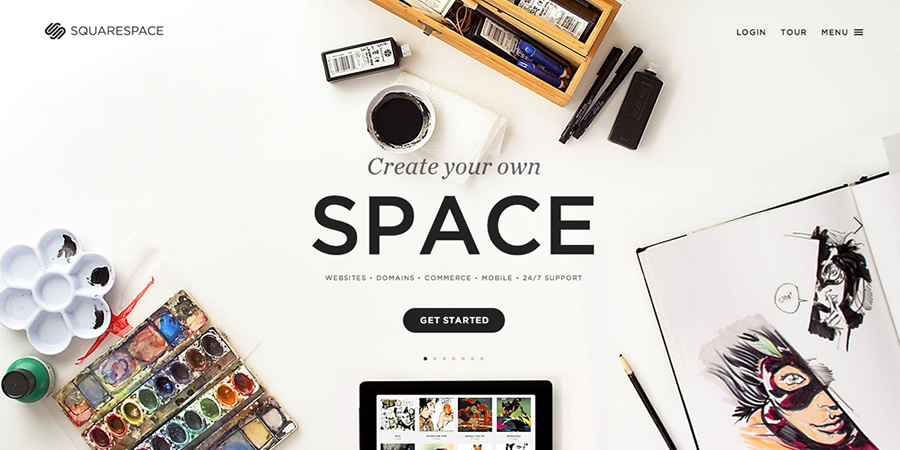How much does it cost to maintain a website for a small business?
April 1, 2024
Discover the power of affordable small business websites. Reach more customers without breaking the bank!
The Importance of Having a Website
In the digital age, having a website is essential for small businesses looking to establish a strong online presence, reach a wider audience, and effectively showcase their products and services. Let’s delve into these critical aspects of the importance of having a website for small businesses.
Establishing Online Presence
A website serves as the virtual storefront for your small business, allowing potential customers to discover your brand and offerings with just a few clicks. By creating a professional and user-friendly website, you can position your business in the online marketplace, making it easier for customers to find you and learn more about what you have to offer.
Reaching a Wider Audience
With a website, small businesses can extend their reach beyond geographical boundaries and tap into a global audience. By optimizing your website for search engines and implementing strategic digital marketing efforts, you can attract potential customers from diverse backgrounds and regions. This expanded reach opens up new opportunities for growth and revenue generation.
Showcasing Products and Services
A well-designed website provides a platform to effectively showcase your products and services in a visually appealing and informative manner. Through high-quality images, detailed product descriptions, and compelling storytelling, you can engage visitors and highlight the unique value proposition of your offerings. Additionally, incorporating customer testimonials and reviews on your website can build trust and credibility among potential customers.
In considering the importance of having a website for your small business, it’s crucial to evaluate how each aspect – online presence, audience reach, and product showcasing – contributes to your overall business goals and objectives. If you’re interested in exploring website building options further, take a look at our guide on best website builders for small businesses to help you make an informed decision tailored to your specific needs.

Affordable Small Business Websites
In the realm of small business ownership, the prospect of having an affordable website can be a game-changer. Let’s explore the advantages of opting for cost-effective websites and debunk common misconceptions surrounding them.
Benefits of Affordable Websites
Affordable websites offer small businesses a cost-effective solution to establish and enhance their online presence. Here are some key benefits of investing in an affordable website:
| Benefits of Affordable Websites |
| Cost-Effective: Affordable websites provide a budget-friendly option for small businesses to create a professional online storefront. |
| Increased Visibility: By having a website, small businesses can expand their online reach and attract a wider audience of potential customers. |
| Showcasing Products and Services: Affordable websites enable businesses to showcase their products and services in a visually appealing and informative manner. |
| Scalability: These websites can be easily updated and scaled as the business grows, allowing for flexibility and adaptation to changing needs. |
By leveraging the benefits of affordable websites, small businesses can level the playing field in the digital marketplace and compete more effectively with larger enterprises. For a comprehensive guide on building a website using DIY platforms, check out our article on best website builders for small businesses.
Common Misconceptions about Affordable Websites
Despite the advantages they offer, affordable websites are sometimes plagued by misconceptions that can deter small business owners from considering them. It’s important to debunk these myths to make informed decisions about website investments. Here are some common misconceptions about affordable websites:
| Misconceptions about Affordable Websites |
| Lack of Quality: One prevailing misconception is that affordable websites lack quality compared to custom-built ones. However, with the advancement of technology and user-friendly DIY platforms, affordable websites can achieve professional standards. |
| Limited Customization: Another misconception is that affordable websites have limited customization options. While they may have certain limitations compared to custom designs, many DIY builders offer a wide range of templates and customization features to tailor the website to the brand’s identity. |
| Poor SEO Performance: Some believe that affordable websites struggle with search engine optimization (SEO). However, with the right strategies and tools, small businesses can optimize their affordable websites for better visibility in search engine results. Explore our article on small business website SEO for insights on improving your website’s search ranking. |
It’s essential for small business owners to understand that affordable websites can offer a cost-effective solution with quality results. By dispelling common misconceptions and making informed choices, businesses can harness the power of affordable websites to enhance their online presence and reach a broader audience.
DIY Website Builders
In the realm of affordable small business websites, do-it-yourself (DIY) website builders have emerged as a popular option for entrepreneurs looking to establish their online presence without breaking the bank. Understanding the overview of DIY platforms and weighing their pros and cons can help small business owners make an informed decision regarding their website creation process.

Overview of DIY Platforms
DIY website builders are online platforms that provide templates and tools for users to create and customize their websites without the need for coding knowledge. These platforms offer a user-friendly interface that simplifies the website development process, enabling individuals to design and launch their sites quickly and affordably.
Small business owners can choose from a variety of DIY website builders, each offering unique features and customization options. Whether it’s drag-and-drop functionality, pre-designed templates, or e-commerce tools, DIY platforms cater to a diverse range of business needs and technical skill levels.
When selecting a DIY platform, consider factors such as ease of use, design flexibility, and scalability to ensure that the chosen builder aligns with your business requirements. To explore some of the best DIY website builders for small businesses, check out our article on best website builders for small businesses.
Pros and Cons of Using DIY Builders
Before diving into the world of DIY website building, it’s essential to weigh the advantages and limitations of these platforms to determine if they are the right fit for your small business.
| Pros of DIY Builders | Cons of DIY Builders |
| Cost-effective solution for small budgets | Limited customization compared to hiring a professional web designer |
| User-friendly interface that requires no coding skills | Template-based designs may lack uniqueness |
| Quick deployment of websites, allowing for faster online presence | Technical support may be limited, impacting troubleshooting capabilities |
| Flexibility to update and modify content without external assistance | Integrating advanced features or functionalities may require additional expertise |
By leveraging DIY website builders, small business owners can take charge of their online presence and create a visually appealing and functional website without incurring high costs. However, it’s crucial to recognize the trade-offs involved in terms of customization, technical support, and scalability when opting for a DIY approach. For insights on small business website design strategies, read our article on small business website design.
Hiring a Web Designer
When it comes to establishing a strong online presence for your small business, professional web design plays a critical role in creating a lasting impression on potential customers. Hiring a skilled web designer can significantly enhance the overall look and functionality of your website. In this section, we will explore the importance of professional web design, key factors to consider when hiring a web designer, and the costs associated with this service.
Importance of Professional Web Design
Professional web design goes beyond just aesthetics; it encompasses strategic elements that drive user engagement, enhance usability, and ultimately contribute to the success of your online presence. A well-designed website not only attracts visitors but also keeps them engaged, increasing the chances of converting them into customers.
By investing in professional web design, small business owners can convey credibility and trustworthiness to their audience. A visually appealing and user-friendly website reflects the professionalism and dedication of the business, leaving a positive impression on visitors.
Factors to Consider When Hiring a Web Designer
When hiring a web designer for your small business website, there are several key factors to consider to ensure you find the right fit for your needs. Some essential factors to keep in mind include:
- Portfolio: Reviewing the designer’s portfolio can give you insight into their style, capabilities, and past projects.
- Experience: Consider the designer’s experience in creating websites for businesses similar to yours.
- Communication: Clear communication is vital for a successful collaboration. Ensure that you can effectively communicate your vision and requirements to the designer.
- Timeline: Discuss the timeline for the website project and ensure that it aligns with your business goals and objectives.
By carefully evaluating these factors, you can select a web designer who not only meets your design preferences but also understands your business goals. If you are interested in working with a web designer, please contact me here.
Costs Associated with Hiring a Web Designer
The cost of hiring a web designer can vary based on various factors, including the complexity of the project, the designer’s experience, and the level of customization required. In general, web design services can be broken down into different pricing structures:
| Service Type | Average Cost |
| Basic Website Design | $800 – $1,800 |
| Custom Website Design | $2,000 – $10,000+ |
| E-Commerce Website Design | $3,000 – $15,000+ |
It’s important to consider your budget and the scope of your project when determining the appropriate level of investment in web design. While affordable options exist, it’s crucial to balance quality with cost to ensure that your website effectively represents your small business.
By understanding the significance of professional web design, considering key factors when hiring a web designer, and being mindful of the associated costs, small business owners can make informed decisions to create an effective and visually appealing online presence.
Finding the Right Solution for Your Business
In the realm of creating a website for your small business, finding the right solution involves considering various factors that align with your specific needs and resources. Let’s delve into three crucial aspects to help you make an informed decision when embarking on your online journey.
Considering Your Budget
One of the primary considerations when exploring website options for your small business is your budget. Small business owners often operate within limited financial constraints, making it essential to choose a cost-effective solution that offers the best value.
To illustrate the budget implications, let’s compare the potential costs associated with DIY website builders versus hiring a professional web designer:
| Aspect | DIY Website Builder | Hiring a Web Designer |
| Initial Setup Costs | Low | High |
| Ongoing Maintenance Fees | Moderate | Varies |
| Customization Options | Limited | Extensive |
| Time Investment | High | Low |
Understanding your financial parameters will help guide your decision-making process and ensure that your website investment aligns with your budgetary constraints.
Evaluating Your Technical Skills
Another critical factor to consider is your technical proficiency in website development and design. Small business owners with a knack for technology may opt for a DIY approach using user-friendly website builders. However, those lacking technical expertise may find the process overwhelming and time-consuming.

Assessing your technical skills can influence whether you choose to create a website independently or seek professional assistance. Here’s a brief overview of the pros and cons associated with each option:
| Aspect | DIY Website Builder | Hiring a Web Designer |
| Ease of Use | User-friendly interfaces are designed for non-technical users but you must still have some level of technical literacy. | Requires no technical involvement from you |
| Customization Options | Limited control over complex design elements. Can be frustrating to get it “just right” | Access to professional design expertise and limitless potential within project scope. |
| Time Investment | Time-consuming process with a learning curve | Web designer handles all aspects of creation, however you will need to be available for questions and creative direction |
Understanding your proficiency in website development will help determine the most suitable path for bringing your small business website to life.
Long-Term Goals for Your Website
When envisioning the future of your website, it’s essential to consider your long-term goals and how they align with your chosen website solution. Are you looking to scale your online presence, expand your e-commerce capabilities, or enhance user experience over time?
By outlining your website’s long-term objectives, you can select a solution that accommodates growth and scalability. Whether you prioritize flexibility, advanced features, or ongoing support, aligning your website strategy with your future aspirations is key to maximizing the digital potential of your small business.
As you navigate the landscape of affordable small business websites, balancing budgetary considerations, technical capabilities, and long-term objectives will empower you to make an informed decision that propels your online presence forward.
Are you considering starting your own website? Whether you choose to use a DIY builder or hire a designer, I can help you along your journey. To figure out what works best for you, you can book a consult with me here.

